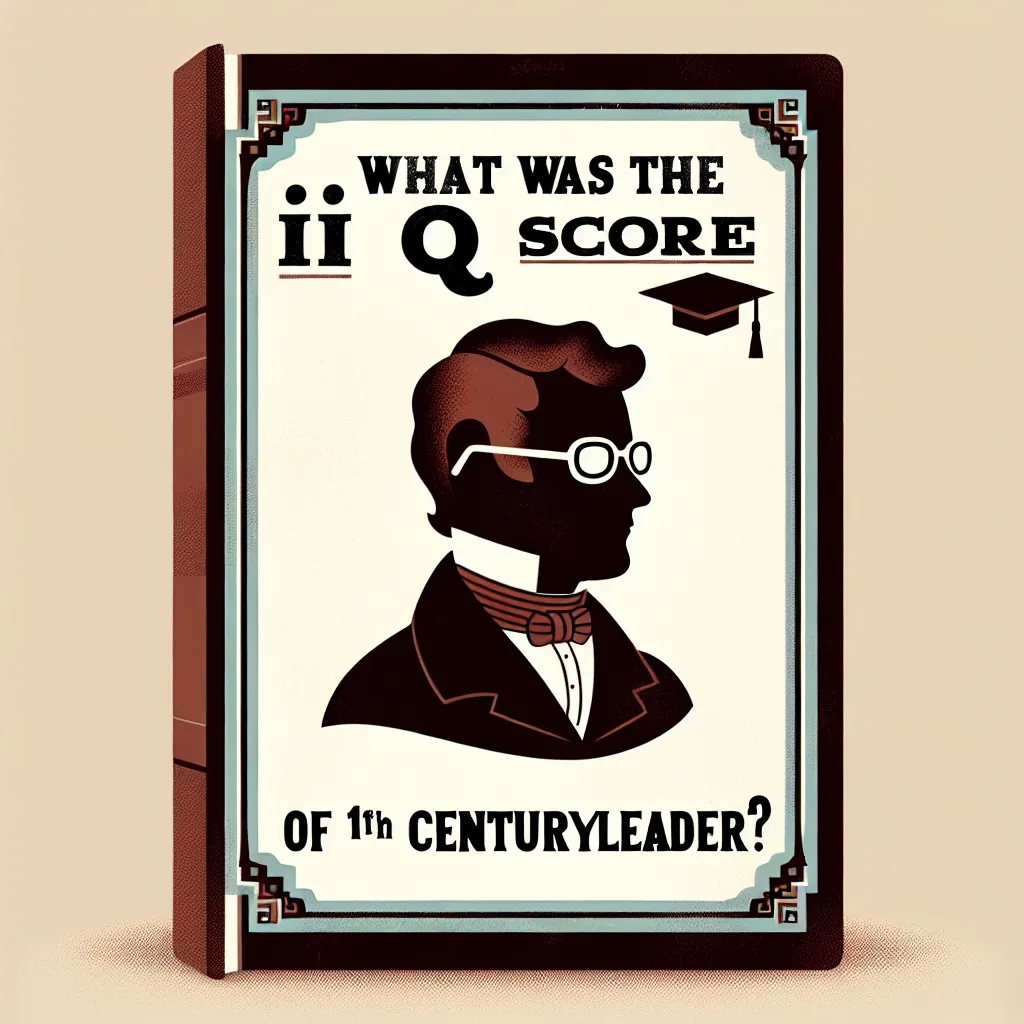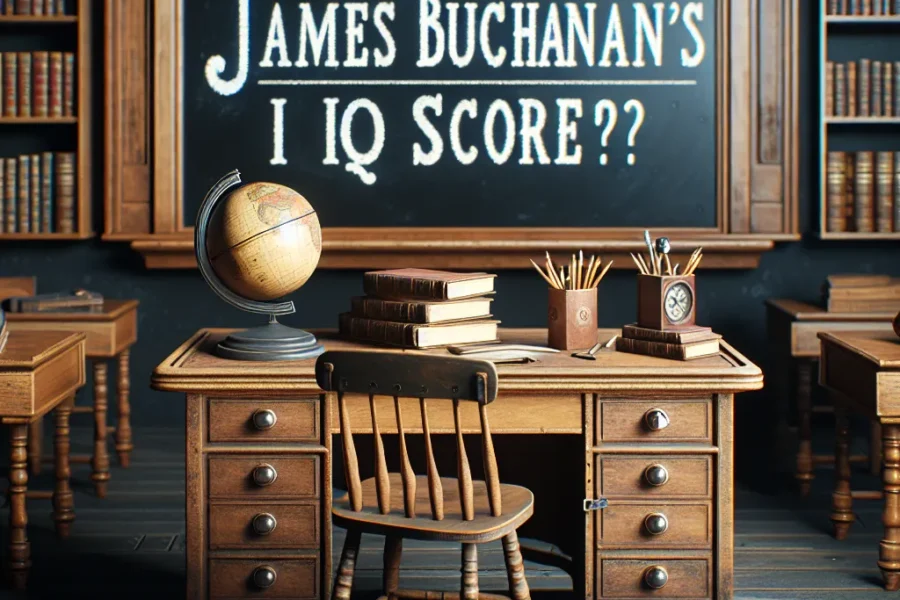Franklin Pierce, the 14th President of the United States, is often remembered more for his troubled presidency than for his intellectual prowess. To this day, the question of Franklin Pierce’s IQ score intrigues many, particularly those who have a keen interest in the intelligence of historical figures and leaders. However, determining an accurate IQ score for someone who lived in the 19th century is fraught with complexities. In this article, we’ll examine the nuances of assessing historical IQ scores, delve into Pierce’s education and intellect, and explore broader discussions surrounding the intelligence of U.S. presidents.
If you are looking for legitimate IQ Tests which pass the entry bar for Mensa, see our IQ Tests.
### Educational Background and Early Life
Franklin Pierce was born on November 23, 1804, in a log cabin in Hillsborough, New Hampshire. He was the son of Benjamin Pierce, a notable figure who served as a two-time governor of New Hampshire. Despite the rural setting of his birth, Franklin Pierce’s family valued education deeply, which provided him with opportunities not available to many of his contemporaries.
Pierce attended Bowdoin College in Brunswick, Maine, where he excelled academically, graduating in 1824. His time at Bowdoin was marked by lasting friendships and connections with prominent individuals such as Nathaniel Hawthorne and Henry Wadsworth Longfellow. The rigorous education and intellectual environment at Bowdoin College undoubtedly contributed to his cognitive development.
### Intelligence and Measurement
The notion of an IQ score, as we understand it today, did not exist during Pierce’s lifetime. The concept of IQ (Intelligence Quotient) was formally introduced in the early 20th century by psychologists such as Alfred Binet and Lewis Terman. Consequently, any attempt to assign an IQ score to Franklin Pierce would be speculative at best.
Modern attempts to retroactively estimate the IQ scores of historical figures usually involve analyzing their educational achievements, writings, speeches, and other intellectual feats. While Franklin Pierce was undoubtedly an educated and competent individual, this approach can be problematic due to the lack of comprehensive and reliable data.
### Pierce’s Presidency and Perception of Intelligence
Pierce’s presidency (1853-1857) is often rated poorly by historians and political scientists, primarily due to his inability to effectively address the escalating sectional tensions that eventually led to the American Civil War. His enforcement of the controversial Kansas-Nebraska Act, which allowed settlers in those territories to determine for themselves whether they would allow slavery, further exacerbated the national divide.
Detractors of Pierce often cite his handling of these complex issues as evidence of a lack of political acumen or foresight. However, equating political failures with a deficiency in intelligence would be an oversimplification. Leading a nation through periods of intense conflict and division would be challenging for any leader.
### Did Franklin Pierce Possess High Intelligence?
Evaluating the intelligence of a historical figure like Franklin Pierce depends on the criteria used. If we consider educational attainment, rational thinking, and communication skills as indicative of intelligence, then Pierce was certainly intelligent. His academic success, legal career, and ability to connect with influential contemporaries suggest a high level of cognitive ability.
However, intelligence is multifaceted and context-dependent. Political leaders must navigate complex social, economic, and geopolitical landscapes, making decisions that require not only intellectual capability but also emotional intelligence, strategic thinking, and moral judgment.
### Comparative Analysis
When discussing the intelligence of U.S. presidents, it’s common to compare them. For example, Thomas Jefferson, often heralded as one of the most intellectually gifted presidents, had a range of interests and accomplishments, from architecture and writing to science and philosophy. If Jefferson’s estimated IQ is placed around 160, one might be tempted to place Pierce significantly lower. Nonetheless, this comparative model might overlook the distinct contexts and challenges each president faced.
Other presidents, such as James Madison or John Quincy Adams, are also regarded as brilliant minds. In contrast, presidents like Ulysses S. Grant or Warren G. Harding often receive lesser acclaim in terms of intellectual capability despite their leadership roles.
### The Complexity of IQ and Leadership
One must consider that intelligence, as measured by IQ, is just one aspect of effective leadership. While a high IQ might contribute to problem-solving skills and decision-making, it does not necessarily correlate with political success or leadership efficacy. Emotional intelligence, communication skills, and the ability to inspire and lead people are equally essential qualities.
Franklin Pierce’s tenure exemplifies the struggle of even the most intelligent individuals in grappling with complex national issues. While modern observers might view his actions and decisions critically, recognizing the multifaceted nature of leadership is crucial in any fair assessment.
### Legacy and Reflection
In retrospect, the legacy of Franklin Pierce’s presidency is a complex tapestry. His efforts to maintain peace and unity within a fractured nation were overshadowed by intensifying conflicts that were perhaps beyond any single leader’s capacity to resolve. His intellectual background and capabilities remind us that leadership is influenced by a multitude of factors beyond mere intellectual prowess.
In conclusion, assigning an IQ score to Franklin Pierce is speculative and ultimately inconclusive. While he was undoubtedly an intelligent and educated individual, his presidency was marked by challenges that tested more than just cognitive abilities. Understanding Pierce in the context of his time, rather than through the lens of modern IQ assessments, allows us to appreciate the complexities and demands of presidential leadership.
Indeed, the question of Franklin Pierce’s IQ score may remain unanswered, but it prompts a deeper reflection on the nature of intelligence and leadership, encouraging us to consider the broader tapestry of qualities that define effective and impactful governance. While we ponder the intersection of history and intellect, we must acknowledge the myriad factors that shape a leader’s legacy, beyond the mere numbers defining their IQ.
For those intrigued by the broader conversation around intelligence assessment, consider exploring the spectrum of IQ tests available today, some of which even meet the rigorous standards set by organizations like Mensa. These contemporary tools offer insight into the complex nature of human intelligence, illuminating the diverse cognitive landscapes that have driven, and continue to drive, our world forward.



Leave a Comment